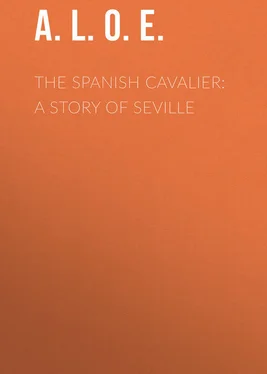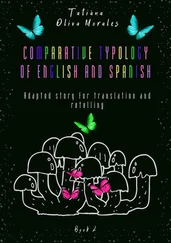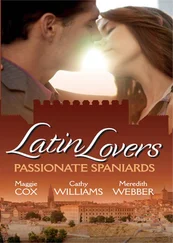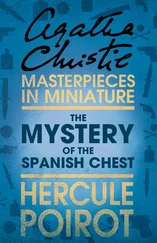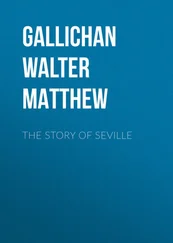A. L. O. E. - The Spanish Cavalier - A Story of Seville
Здесь есть возможность читать онлайн «A. L. O. E. - The Spanish Cavalier - A Story of Seville» — ознакомительный отрывок электронной книги совершенно бесплатно, а после прочтения отрывка купить полную версию. В некоторых случаях можно слушать аудио, скачать через торрент в формате fb2 и присутствует краткое содержание. Жанр: foreign_antique, foreign_prose, на английском языке. Описание произведения, (предисловие) а так же отзывы посетителей доступны на портале библиотеки ЛибКат.
- Название:The Spanish Cavalier: A Story of Seville
- Автор:
- Жанр:
- Год:неизвестен
- ISBN:нет данных
- Рейтинг книги:3 / 5. Голосов: 1
-
Избранное:Добавить в избранное
- Отзывы:
-
Ваша оценка:
- 60
- 1
- 2
- 3
- 4
- 5
The Spanish Cavalier: A Story of Seville: краткое содержание, описание и аннотация
Предлагаем к чтению аннотацию, описание, краткое содержание или предисловие (зависит от того, что написал сам автор книги «The Spanish Cavalier: A Story of Seville»). Если вы не нашли необходимую информацию о книге — напишите в комментариях, мы постараемся отыскать её.
The Spanish Cavalier: A Story of Seville — читать онлайн ознакомительный отрывок
Ниже представлен текст книги, разбитый по страницам. Система сохранения места последней прочитанной страницы, позволяет с удобством читать онлайн бесплатно книгу «The Spanish Cavalier: A Story of Seville», без необходимости каждый раз заново искать на чём Вы остановились. Поставьте закладку, и сможете в любой момент перейти на страницу, на которой закончили чтение.
Интервал:
Закладка:
"Don Alcala will look a goodly cavalier," observed Donna Maria in an encouraging tone. "We will pray the Madonna to give him success."
"I have wearied every saint with my prayers," sighed Inez de Aguilera, "and yet – hark! surely there is the sound of a ring!" and again she eagerly sprang to her feet.
"Your brother would not ring, but enter," suggested Donna Maria. "Poor child! how you are trembling!"
Inez was indeed trembling violently; she had to lean against a column for support, as the grating of the vestibule was unclosed, and not Alcala but Teresa appeared. The old servant bore in one hand a letter, in the other a lantern borrowed from Donna Maria's attendant, who was waiting with her mule-carriage in the street. Inez had a presentiment that the missive was from her brother, and that his sending it was a sign that he was not coming himself. She took the letter from Teresa, and eagerly tore it open; for by the lantern's light Inez recognized the handwriting of Alcala.
The brief note was as follows: —
"It is better, dearest, that we meet not again till all is over. Send Chico at dawn with Campeador and my dress to the Posada 9 9 An inn
de Quesada; he knows the place well. Kiss for me the hand of our venerable parent. Farewell! a brother's blessing be with you! Inez, you have been more than a sister to Alcala."
CHAPTER V.
ANNOUNCEMENTS
It has been seen that rumours of Alcala's proposed venture had reached the ears of Lucius Lepine, but he had not been disposed to give full credence to such reports. Lucius had been long enough in Spain to be aware that in the nineteenth century it is as unusual for a Spanish nobleman to take an active part in the bull-circus, as it would be for an English one to show off his strength in the prize-ring. The strange report was, however, painfully confirmed in the mind of Lucius when on that Saturday evening he was proceeding on his way to the house of Mr. Passmore, where he was engaged to take dinner.
A large lamp burning before an image of the Virgin Mary, at the corner of one of the narrow lanes through which Lucius was passing, threw light on the opposite side, where a large space of boarding had been taken advantage of by the bill-posters of Seville. It would have required less light to have deciphered the large red capital letters in which appeared the following announcement: —
"To-morrow, August – , 1868, the most noble and illustrious caballero, Don Alcala de Aguilera, mounted on his superb charger, will encounter a bull of unequalled size and fierceness in the circus of the Coliseo."
The red letters seemed to swim before the eyes of Lucius Lepine. He stood as if rooted to the ground, till roused by a light touch on the shoulder. Turning round, he saw a stout personage, who from his black robe, huge hat with flaps turned up at the sides, and rosary with crucifix suspended from his neck, he knew to be one of the Spanish priests.
"Inglesito, mark that well!" said the priest emphatically, pointing, ere he passed on, to another placard which, printed in black and in smaller type, and therefore not so conspicuous, appeared close to the announcement of the bull-fight in the Plaza de Toros. The attention of Lucius being thus directed towards it, he read with surprise the following extraordinary charge from the Lord Bishop of Cadiz: — 10 10 This is taken verbatim from a translation of the charge, given in "Daybreak In Spain," by the Rev. J. Wylie, D.D.
"The Enemy of mankind desists not from his infernal task of sowing tares in the field of the Great Husbandman, and to us it belongs, as sentinels of the advanced post of the house of Israel, to sound the alarm, lest his frauds and machinations should prevail. We say this, because we have read with profound grief, in a periodical lately published, that the Protestant Bible Societies and Associations for the distribution of bad books are redoubling their efforts for inoculating our Catholic Spain with the venom of their errors and destructive doctrines, selecting, in particular, our religious Andalusia as the field of their operations," &c. &c.
At another time such a placard as this would have been read by Lucius with intense interest, and would have wholly engrossed his thoughts for the time. Even under present circumstances, with his mind painfully preoccupied by anxiety for his friend, the charge of the Bishop of Cadiz left a deep impression on Lucius. Others then were actually doing the work from which he had shrunk. Others were coming forward, like Gideon's three hundred heroes moving bravely on through the darkness. Already the lights which they bore must be flashing here and there; for Rome would not sound such a cry of alarm had she not heard the tramp of an enemy's feet in her camp, and caught sight of gleams of evangelical truth carried into the midst of her hosts.
"There must be a movement going on, even in Seville," thought Lucius, "of which I never knew till this moment. Not all of my countrymen have been cold-hearted laggards like me."
Lucius, for once, arrived late for dinner, found the company already seated at table, and forgot to make an apology. Mr. Passmore, at the head of a board loaded with a repast more profuse than elegant, was too much engaged with his double occupation of eating and talking even to notice the entrance of his clerk. The familiar sound of the snorting laugh of his employer reached Lucius before he came into the room.
"Ho, ho, ho! it was a shabby trick in the cavalier to engage himself as a butcher, without giving due notice that he intended to leave the ironware business! And I paid the fine gentleman his quarter's salary only last week! Don Alcala de Aguilera is no great loss to the firm, for he took his very pay with an air which seemed to say, 'I'm a hidalgo, a gentleman born; I honour you too much by soiling my fingers with an Englishman's dirty cash.'"
"Aguilera has not a bad headpiece, though," observed one of the party.
"Oh, for a Spaniard he's clever enough," replied Passmore, speaking with his mouth full; "had it not been for his ridiculous Spanish pride, the don would have made a fair man of business. Save in that matter of the translation yesterday; – I told you that capital story! ho, ho, ho! I see now how twenty dozen bulls came to be running in the poor fellow's head; no wonder that he looked pale at the idea of such an awful squad of the beasts!" Peter Passmore leant back in his chair, and laughed till he seemed to be in danger of suffocation.
"Aguilera will find one of them enough, and too much, I'm afraid," said the former speaker.
"Perhaps the don thought that he'd do a sharp bit of business," resumed Mr. Passmore, as soon as his explosive mirth had sufficiently subsided; "he'd contrive to get double pay for double work, by writing on week-days and fighting on Sundays. I wonder now what he'll receive for sticking his bull!"
"Nothing but honour," said an onion-merchant who was one of the guests. "Folk say that there is some fair donna of Seville mixed up with the business."
"Then Don Alcala de Aguilera is a greater idiot than I took him for!" exclaimed the ironware manufacturer. "I can imagine a man's selling his blood to support himself and his family; every soldier does that, and if he get a cannon-ball instead of promotion, one can only say that the poor fellow has had the worst of the bargain. But a man who is willing to run the chance of being gored or tossed for the sake of the prettiest girl that ever danced a bolero, is madder, in my opinion, than Molière's far-famed knight of La Mancha. Ah! Lepine, so you're here at last. You are Aguilera's friend; did you know anything beforehand of this freak of romantic folly?"
Lucius only shook his head; he could not trust himself to make other reply.
Читать дальшеИнтервал:
Закладка:
Похожие книги на «The Spanish Cavalier: A Story of Seville»
Представляем Вашему вниманию похожие книги на «The Spanish Cavalier: A Story of Seville» списком для выбора. Мы отобрали схожую по названию и смыслу литературу в надежде предоставить читателям больше вариантов отыскать новые, интересные, ещё непрочитанные произведения.
Обсуждение, отзывы о книге «The Spanish Cavalier: A Story of Seville» и просто собственные мнения читателей. Оставьте ваши комментарии, напишите, что Вы думаете о произведении, его смысле или главных героях. Укажите что конкретно понравилось, а что нет, и почему Вы так считаете.
